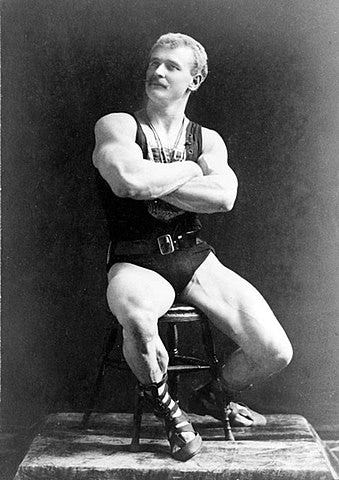The Cholent: Don't "Sweat" this Book
But it is a good way to learn about some interesting people you've never heard of
My first book of the year was “Sweat: A History of Exercise” by Bill Hayes. Hayes is possibly most famous (or famous by extension) for being Oliver Sacks’ partner when Sacks died. Having not heard of him other than this book (which was given to me by a friend), it would seem he is doing a good job riding on the fame of his late partner to get a few book deals as well. It isn’t even clear to me if he had a profession other than writing books, but perhaps just “being an author” is the source of how I feel about this book.
If one is “just an author”, then the goal is to write a book. In this case, a book has been written so his job is done. However, to call it a “history” may be a bit ambitious. The overwhelming majority of the book discusses a Renaissance man named Girolamo Mercuriale from the Middle Ages who he claims wrote the first exercise manual ever. While there may be a few pages actually discussing his life, more of the book is dedicated to Hayes’ quest to find out everything he can about this individual, which would make this as much a travelogue as it would a history.
But I like travelogues too and he certainly did come up with some fun stories along the way. I never felt like I had the need to put it down and people’s lives can be interesting in their own right. Whether or not they are interesting enough for a book is another story. Most of his anecdotes were things that happen to people trying to do anything they would do in their normal lives, so I’m not sure he crosses any thresholds that make his experiences more worthy of publication than anyone else’s.
So maybe this is a memoir wrapped in a history, and this might be the best way to classify the book. It would explain why there were maybe two pages dedicated to Arnold Schwarzenegger and only in the context of him confirming Hayes’ homosexual feelings during his childhood. Along the same lines, the penultimate chapter of the book covered his dealings with the AIDS epidemic in the 1980s (sad I now need to include the “19” when mentioning the 80s) with only minimal justification for how it related to the “history of exercise.” To me, I find “Histories of ____” way more interesting when they are leveraged to explain world history in a different light, rather than a single individual’s.
Contradictions abound for many of the policy points he tries to make. There was one episode in the book where he tries to bring in some arguments against regular exercise as we know it (e.g. time in the gym, going for a run). The strongest case made here was by someone who said you need to make exercise a part of your regular life, for example, running to catch trains, loading stock in a store, etc. It was a good argument and he started developing it, only to completely contradict himself a page or two later by advocating and lauding the intentional approach to exercise. Grr.
Another thing that frustrated me was the picture section. One of my challenges to myself is to see how long I can read a non-fiction book without skipping ahead and looking at the pictures the author included. Overall, the picture section for this book was measly, but one part of the book spent several pages discussing a 1950s weightlifter named Eugen Sandow who made a fortune posing for pictures for a small fee. Dude! This guy’s life was all about photographs and you don’t include a picture of him! What gives!

So do I know more about the history of exercise after reading this book? Yes, I do. Did I learn about interesting people in the world and in the world of exercise? Yes, I did (for example that Jane Fonda can be partially credited with the proliferation of the VCR in the early 1980s). Is it your traditional history that starts with the earliest examples of exercise that can be found and that follows that timeline without deviating or skipping around and then explains how it impacted world history? No, it is not. Read this book because you want to be entertained and maybe learn a few things about Oliver Sacks’ partner.
Buy Sweat: A History of Exercise on Amazon (Kindle)




